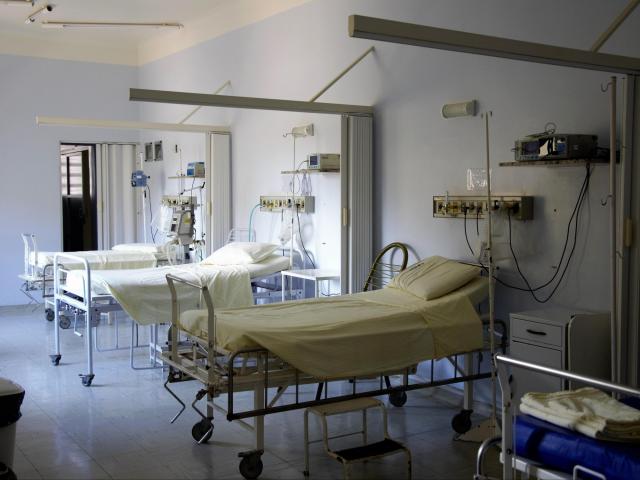Durham, N.C. — Duke Health officials said that hospitals are nearing capacity as the omicron variant rapidly spreads through unvaccinated communities.
“I really want people to understand what we’ve faced here,” said Dr. Cameron Wolfe, an infectious disease expert with Duke Health. “Because I think it’s been somewhat miscommunicated how mild this omicron variant has been. It may be a little more mild for individual cases. But it has not been mild from a hospital point of view because of the sheer volume of people getting sick.”
The omicron variant has also been “much more resistant to other treatments that we would previously use,” he said. The two main treatments used for monoclonal antibody treatment are “ineffective” against omicron, according to Wolfe.
The New York Times reports that there are concerns from doctors across the U.S. over the lack of treatment for patients with omicron. Eli Lilly and Regeneron’s monoclonal antibody treatments are so ineffective they are not being given to patients anymore at some hospitals, the report says.
There’s a shortage of the third type of monoclonal antibody treatment, which is effective at treating patients fighting omicron. The New York Times reports this is the recently-approved treatment called sotrovimab, made by GlaxoSmithKline. Wolfe said Duke only has 60 doses left.
“I have probably 60 people in the ER right now,” he said.
Hospitalizations have nearly doubled this week, and Wolfe anticipates that the surge has only just begun. People who maybe caught the virus during holiday gatherings will only just now begin turning up to the hospital.
Wolfe said that he and his colleagues are “highly nervous at this point of what that will mean for the next two weeks.” The majority of people currently hospitalized in North Carolina are unvaccinated, according to state data. 89% of all people in the ICU with coronavirus have not had their vaccine.
On top of an increase in hospitalizations, Wolfe said around 400 Duke health care employees are currently sick with coronavirus. As of Thursday, UNC Health has more than 530 employees who are out due to COVID-19, including some who have known exposure in the community and some who have tested positive. 116 WakeMed employees —more than 1% of the health system’s 10,000 employees — were out of work on Wednesday due to a COVID-19 exposure or positive COVID-19 test.
If hospitalizations continue to increase after Christmas and the New Year, then there will be no more room for other illness or elective surgeries not related to coronavirus, Wolfe said.
“We are not going to be able to offer the same degree and sort of emergency services and care that we would normally want to do,” Wolfe said.
Wolfe warned the public to reconsider their New Year’s Eve plans, and take part in something “community-minded,” for the sake of health care workers.
Only around 40% of people who are fully vaccinated in North Carolina have gotten a booster shot, according to data from the state Department of Health and Human Services.
“People need to recognize that two doses of a vaccine was great for delta, and it’s not so good fit for omicron,” he said. Evidence shows that the variant is able to evade vaccines quite well.
People who have their booster shot likely won’t have to worry about contracting the virus.
“If you’re boosted, and you’re asymptomatic, your chance of having COVID-19 is incredibly small,” he said. “It’s probably not zero.”
Wolfe said don’t dismiss any symptoms, like a sore throat or runny nose.
“Please don’t come at me in the middle of December and say your allergies are acting up. It’s probably at this point COVID-19. Almost hands down, I’d put money on it being COVID-19.”

